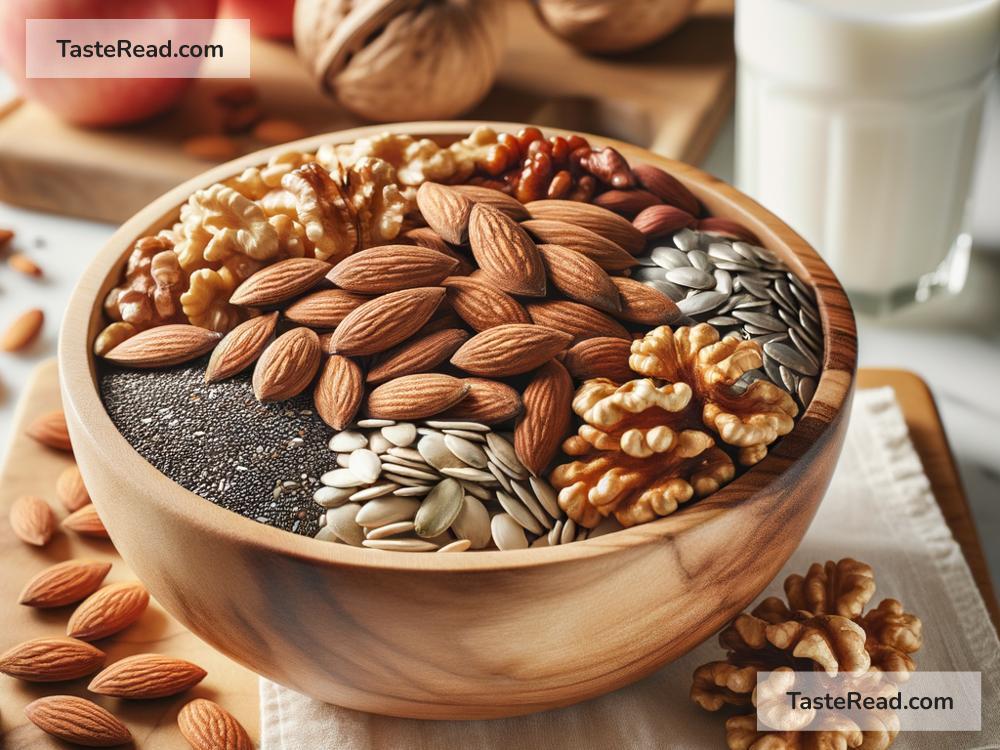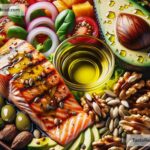The Benefits of Nuts and Seeds for Nutrition
When it comes to eating healthy, adding nuts and seeds to your meals is one of the best decisions you can make. These small-sized foods are packed with nutrition, and they’re delicious, versatile, and easy to include in your diet. They are great for snacking, sprinkling on top of meals, or blending into smoothies. In this blog, we’ll explore the nutritional benefits of nuts and seeds, explain why they can support a healthy lifestyle, and offer tips on how to incorporate them into your everyday diet.
Why Are Nuts and Seeds Good for You?
Nuts and seeds might be tiny, but they have big benefits for your body. They are rich in essential nutrients like healthy fats, protein, vitamins, minerals, and fiber. Let’s break down why they’re so healthy:
-
Packed With Healthy Fats
Many nuts and seeds contain “good” fats, such as monounsaturated and polyunsaturated fats. These fats help keep your heart healthy by reducing bad cholesterol levels and improving good cholesterol levels. For example, almonds, walnuts, chia seeds, and flaxseeds are known for their heart-healthy fats. -
Rich Source of Protein
Protein is important for building and repairing tissues in the body. Nuts and seeds are a great source of plant-based protein, especially for people who follow vegetarian or vegan diets. Just a handful of peanuts, sunflower seeds, or almonds can boost your daily protein intake. -
High in Fiber
Fiber is crucial for maintaining a healthy digestive system. Eating foods with fiber helps prevent constipation and keeps you feeling full longer, which can help with weight management. Seeds like chia and flaxseed are especially high in fiber. -
Loaded With Vitamins and Minerals
Nuts and seeds are full of essential vitamins and minerals that boost your immune system and support overall health. For instance, cashews are a good source of magnesium, which helps with bone health and energy production, while sunflower seeds are packed with vitamin E, an antioxidant that protects your cells from damage. -
Great Source of Antioxidants
Antioxidants are nutrients that help fight free radicals, which can damage cells in your body and lead to health problems like aging and disease. Walnuts, pecans, and pumpkin seeds are rich in antioxidants, which protect your health and keep your body functioning well.
Which Nuts and Seeds Are the Healthiest?
There’s no single “best” nut or seed because each variety has its own unique benefits. However, here are some of the healthiest options to include in your diet:
- Almonds: High in vitamin E, calcium, and heart-healthy fats. They’re great for your skin and bones.
- Walnuts: Packed with omega-3 fatty acids, which help brain health and reduce inflammation.
- Cashews: Rich in magnesium, iron, and zinc, which support immune health.
- Pistachios: Low in calories but high in potassium and vitamin B6, which help with energy production.
- Chia Seeds: Full of fiber, omega-3 fatty acids, and calcium. They’re perfect for digestion and bone health.
- Flaxseeds: High in alpha-linolenic acid (ALA), a type of omega-3 that fights inflammation.
- Pumpkin Seeds: Loaded with magnesium and zinc, which improve your mood and boost energy.
- Sesame Seeds: High in copper and calcium, they promote healthy bones and joints.
- Sunflower Seeds: Rich in vitamin E and selenium, which protect your body against oxidative stress.
How to Add Nuts and Seeds to Your Diet
The best part about nuts and seeds is how easy they are to add to your daily meals. Here are some simple ways to enjoy them:
-
As a Snack
Pack a small portion of mixed nuts or seeds in a ziplock bag or jar for a healthy, on-the-go snack. -
In Breakfast
Sprinkle nuts or seeds on your cereal, oatmeal, or yogurt. Chia seeds and flaxseeds are also great for adding to smoothies. -
In Salads
Add almonds, walnuts, sunflower seeds, or pumpkin seeds to your salad for extra crunch and protein. -
In Baking
Use nuts and seeds as ingredients in muffins, bread, cookies, or granola bars to make them healthier and tastier. -
As Nut Butter
Spread almond or peanut butter on toast for a nutritious breakfast or snack. You can also use it as a dip for fruits like apples or bananas. -
In Cooking
Add crushed nuts and seeds into your rice, pasta, or stir-fried vegetables to boost the flavor and nutrition.
A Few Things to Keep in Mind
While nuts and seeds are extremely healthy, it’s important to eat them in moderation. They are calorie-dense, so eating too many can contribute to weight gain if not balanced with other foods. Additionally, some people may be allergic to certain nuts or seeds, so always check with your doctor if you have food allergies.
Opt for unsalted and raw varieties instead of those covered in sugar or flavored coatings. Roasted nuts and seeds are fine, but remember that they may have added oils or salt, so read the label carefully.
Conclusion
Nuts and seeds are nutritional powerhouses that offer a wide range of health benefits. Whether you’re looking to improve heart health, boost your energy, or support digestion, these tiny wonders can make a big difference in your diet. Their versatility and flavor make them a fun addition to meals, and their nutrients contribute to a healthier, more balanced lifestyle. So, grab a handful of nuts or sprinkle some seeds on your next meal—they’re small but mighty when it comes to your health!


